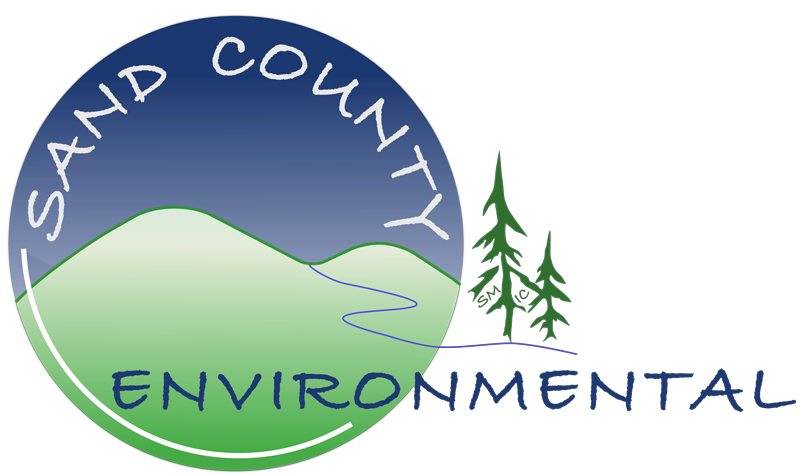Ever wondered what soil contamination looks like beneath the ground surface? This is a perfect example from an excavation Sand County Environmental completed in 2022. The contaminant of concern for this dig was diesel fuel, and this soil cross-section gives you a good idea as to what it can look like below ground when soil becomes contaminated. On this particular occasion, Sand County Environmental oversaw the removal of over 2,000 tons of contaminated soil from a site located nearby one of the United States’ major rivers! ... See MoreSee Less
A commercial composter hired Sand County Environmental, Inc. to help permit a field for land-application of stormwater runoff collected from the composting area. A spring round of soil test pits confirmed the soil’s capacity to accept the liquids. While we did find mottles indicating periodic perched water in the silty subsurface, our observations indicated that layer is only saturated seasonally, i.e. when frost inhibits drainage. We pointed out to regulators that, under those conditions, the field would be inaccessible to a tractor and loaded tank anyway, acting as a natural safeguard against spreading at inappropriate times.
Using the information gathered in the field, we were able to show the receiving soil has more than enough pore space to handle the applied liquid. Plants and native microbes will do the rest!
This is an efficient way for the composting run-off to be naturally treated right at the production site, using an agency-approved and scientifically-based application process. As an added bonus, the nutrient-rich liquid will feed the plants and soil food web, building a fertile soil rich in organic matter.
Professional Soil Scientists at SCE can advise and permit landspreading for agriculture and industry;
contact us to discuss soil-based treatment solution options for you. ... See MoreSee Less



